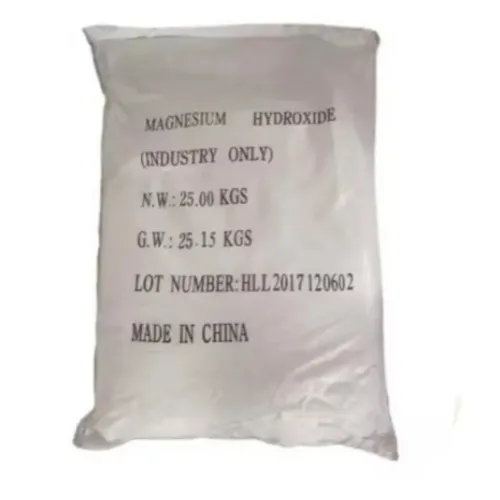 Email: sale@hebeidisha.com
Email: sale@hebeidisha.com
 Tel: +86 13315186550
Tel: +86 13315186550
- Afrikaans
- Albanian
- Amharic
- Arabic
- Armenian
- Azerbaijani
- Basque
- Belarusian
- Bengali
- Bosnian
- Bulgarian
- Catalan
- Cebuano
- China
- China (Taiwan)
- Corsican
- Croatian
- Czech
- Danish
- Dutch
- English
- Esperanto
- Estonian
- Finnish
- French
- Frisian
- Galician
- Georgian
- German
- Greek
- Gujarati
- Haitian Creole
- hausa
- hawaiian
- Hebrew
- Hindi
- Miao
- Hungarian
- Icelandic
- igbo
- Indonesian
- irish
- Italian
- Japanese
- Javanese
- Kannada
- kazakh
- Khmer
- Rwandese
- Korean
- Kurdish
- Kyrgyz
- Lao
- Latin
- Latvian
- Lithuanian
- Luxembourgish
- Macedonian
- Malgashi
- Malay
- Malayalam
- Maltese
- Maori
- Marathi
- Mongolian
- Myanmar
- Nepali
- Norwegian
- Norwegian
- Occitan
- Pashto
- Persian
- Polish
- Portuguese
- Punjabi
- Romanian
- Russian
- Samoan
- Scottish Gaelic
- Serbian
- Sesotho
- Shona
- Sindhi
- Sinhala
- Slovak
- Slovenian
- Somali
- Spanish
- Sundanese
- Swahili
- Swedish
- Tagalog
- Tajik
- Tamil
- Tatar
- Telugu
- Thai
- Turkish
- Turkmen
- Ukrainian
- Urdu
- Uighur
- Uzbek
- Vietnamese
- Welsh
- Bantu
- Yiddish
- Yoruba
- Zulu
ágú . 08, 2024 07:50 Back to list
Exploring the Uses and Controversies Surrounding E591 Aspartame in Food Products and Health Impacts
Understanding E591 Aspartame The Artificial Sweetener
Aspartame, classified under the food additive code E591, is one of the most widely used artificial sweeteners in the food industry. Known for its intense sweetness, Aspartame is approximately 200 times sweeter than sucrose (table sugar), making it a popular choice for low-calorie and sugar-free products. This article will explore what Aspartame is, its applications, potential health concerns, and regulatory status.
What is Aspartame?
Aspartame is a dipeptide composed of two amino acids aspartic acid and phenylalanine. It was discovered in 1965 by chemist James M. Schlatter while working on an anti-ulcer drug. Upon tasting the compound, Schlatter recognized its sweetness, leading to further investigations into its potential as a sugar substitute. Aspartame is often found in products labeled as sugar-free or diet, including sodas, chewing gum, desserts, and various processed foods.
Applications in Food Industry
Due to its sweetness and low-calorie content, Aspartame is highly advantageous for manufacturers aiming to reduce sugar content while maintaining flavor. It is commonly used in
1. Beverages Aspartame is a popular sweetener for diet sodas and flavored water, providing a sweet taste without the calories associated with sugar.
2. Dairy Products Many yogurt brands use Aspartame to offer low-calorie options for health-conscious consumers.
e591 aspartame

3. Condiments and Sauces Some ketchup and salad dressings are formulated with Aspartame, allowing for reduced sugar and calorie content.
4. Gum and Candies Aspartame is often included in sugar-free gum and candy, catering to those who enjoy sweets without the guilt.
Regulatory Status and Safety
Aspartame has been subject to extensive research and scrutiny regarding its safety. It has been evaluated by numerous health authorities, including the United States Food and Drug Administration (FDA), the European Food Safety Authority (EFSA), and the World Health Organization (WHO). These organizations have deemed Aspartame safe for consumption within established daily intake limits.
However, there are specific health considerations, particularly for individuals with phenylketonuria (PKU), a rare genetic disorder that impairs the body’s ability to metabolize phenylalanine. People with PKU must avoid Aspartame due to its phenylalanine content. Labeling requirements mandate that products containing Aspartame carry a warning for those with PKU.
Concerns regarding Aspartame have been brought to public attention, often fueled by anecdotal evidence and misinformation. Studies have investigated links between Aspartame and health issues, including cancer and neurological disorders. However, the consensus among food safety agencies is that there is no credible evidence to support these claims when Aspartame is consumed within recommended limits.
Conclusion
Aspartame, or E591, remains one of the most popular artificial sweeteners in the world, appreciated for its ability to provide sweetness without the calories. While it has undergone rigorous testing and is generally recognized as safe by various health authorities, understanding its implications for health, particularly for individuals with PKU, is crucial. As consumers continue to seek healthier alternatives, Aspartame will likely maintain its significant role in the food and beverage industry, balancing taste and health considerations in our increasingly sugar-conscious society.
Latest news
-
Certifications for Vegetarian and Xanthan Gum Vegetarian
NewsJun.17,2025
-
Sustainability Trends Reshaping the SLES N70 Market
NewsJun.17,2025
-
Propylene Glycol Use in Vaccines: Balancing Function and Perception
NewsJun.17,2025
-
Petroleum Jelly in Skincare: Balancing Benefits and Backlash
NewsJun.17,2025
-
Energy Price Volatility and Ripple Effect on Caprolactam Markets
NewsJun.17,2025
-
Spectroscopic Techniques for Adipic Acid Molecular Weight
NewsJun.17,2025